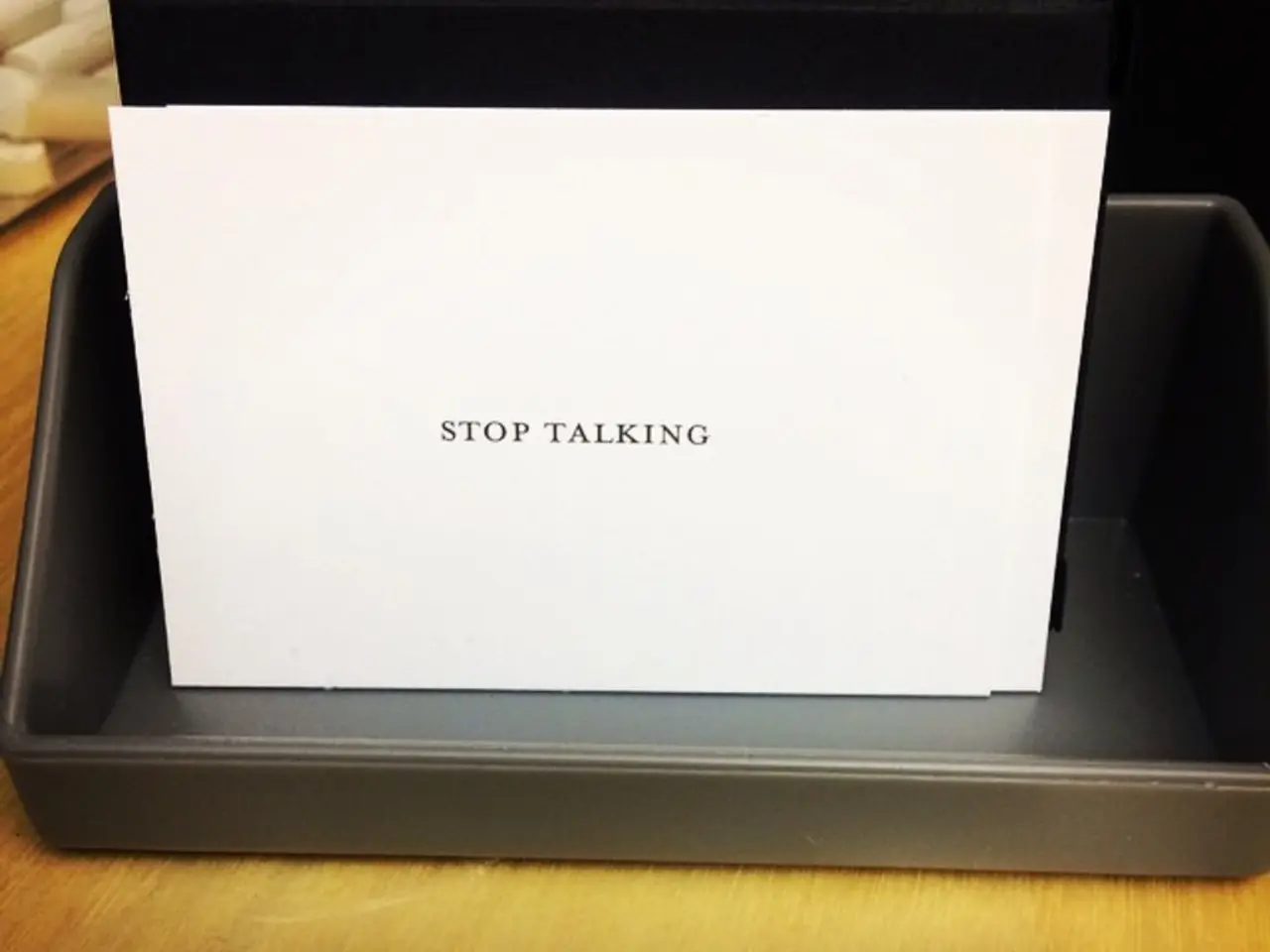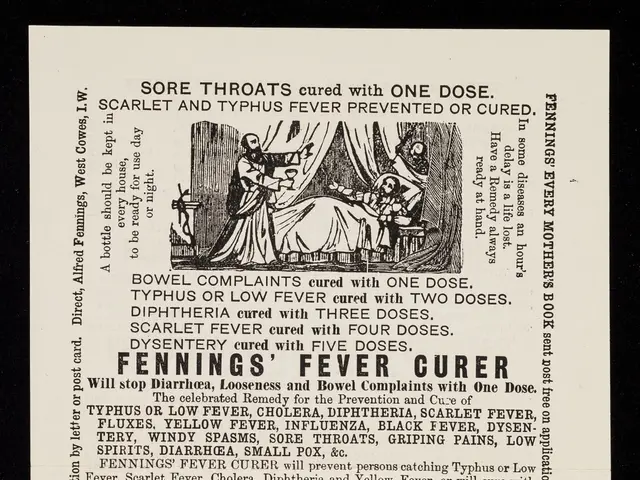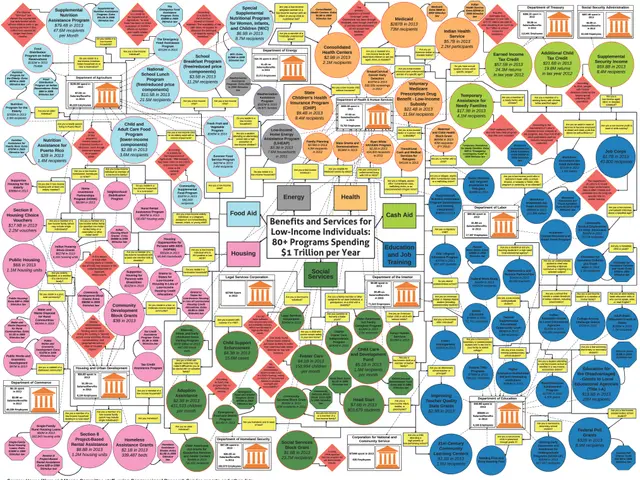Six Frequently Used Expressions That Might Surprisingly Show patronizing Attitudes
In conversation, we often find ourselves engaging in complex and demanding tasks that consume a significant amount of cognitive power, as noted by journalist Celeste Headlee. However, it's essential to be mindful of the words and phrases we use, as some can unintentionally come off as condescending and demeaning.
One such phrase is "It's not that big of a deal," which minimizes and invalidates the other person's experience and feelings, as pointed out by Scott Rower in an article for HuffPost. Similarly, phrases like "Oh, how cute" and "Well, actually..." can be perceived as condescending, especially when used in a patronizing tone.
Southern California psychotherapist Elisabeth Crain suggests that these condescending remarks often stem from underlying insecurity or an inflated ego. This is further supported by Headlee, who states that condescension involves speaking to someone in a way that implies one's superiority.
The person on the receiving end of condescension is left with feelings about the way the information has been presented, rather than the information itself. This is not an effective way of getting one's point across, as it is insulting and demeaning.
Commonly, phrases like "You're trying your best" can come off as belittling and inappropriate, as they label someone's understanding or effort as "cute." Anything that suggests a definitive way of doing things can also be perceived as condescending because it puts pressure on the message. Phrases like "You just need to..." and giving someone definitive advice on how to live their life can come off as condescending, implying that the person's current way is wrong and that you know better.
To avoid coming off as condescending, making a small tweak to your approach can be beneficial. For instance, saying "'I think it could be helpful for you to do that,' rather than, 'You have to' or 'You should,' can help avoid this issue. The phrase "'Perhaps' softens that pressure," according to Elisabeth Crain.
It's important to remember that the tone behind words is crucial, and patronizing responses can be perceived as condescending, especially if the tone doesn't match the sentiment. Phrases like "You wouldn't understand" or "You wouldn't get it" imply that the person on the receiving end isn't smart enough to figure something out or understand an experience that's not their own.
Condescension can show up not just in what we say, but in our tone of voice, nonverbal cues like facial expressions, and body language like patting someone on the head. Be prepared for mistakes and misinterpretations in conversation, and see them as growth opportunities, as advised by Headlee.
In conclusion, being mindful of our words and actions in conversation is crucial to maintaining respectful and effective communication. By avoiding condescending language and tone, we can foster healthier and more productive discussions.
Read also:
- Peptide YY (PYY): Exploring its Role in Appetite Suppression, Intestinal Health, and Cognitive Links
- Toddler Health: Rotavirus Signs, Origins, and Potential Complications
- Digestive issues and heart discomfort: Root causes and associated health conditions
- House Infernos: Deadly Hazards Surpassing the Flames








